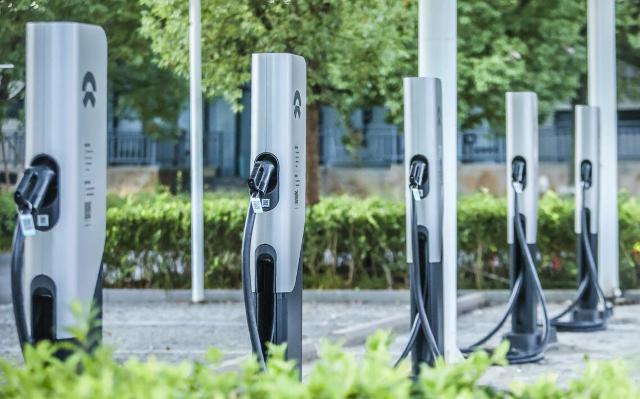In a recent update delivered by Minister of State for Heavy Industries, Krishan Pal Gurjar, to the Lok Sabha, it was revealed that the number of operational electric vehicle (EV) charging stations across the country has reached 12,146 as of February 2nd this year.
According to data disclosed by the minister, Maharashtra leads the charge with 3,079 EV charging stations, followed closely by Delhi with 1,886 stations. Karnataka secures the third position with 1,041 charging stations.
Following the top three states, Kerala boasts 852 stations, Tamil Nadu with 643, Uttar Pradesh with 582, Rajasthan with 500, Telangana with 481, Gujarat with 476, and Madhya Pradesh with 341, completing the top 10 list.
The Ministry of Heavy Industries (MHI) has been actively promoting the adoption of EVs in India. Under the FAME-II scheme, financial incentives, including subsidies, are provided to encourage the establishment of public charging infrastructure, aimed at bolstering confidence among EV users, the minister affirmed.
Moreover, the Ministry of Power has initiated various measures to expedite the deployment of public EV charging infrastructure nationwide. Guidelines and standards have been established for charging infrastructure, facilitating EV owners to charge their vehicles at home or work using existing electricity connections.
Furthermore, a revenue-sharing model offering land at discounted rates for public charging stations has been introduced, alongside provisions for timely electricity connections to Public Charging Stations (PCS).
The government has also mandated a single-part EV tariff for public charging stations, capped at the Average Cost of Supply (ACoS) until March 31, 2025. The guidelines specify tariff ceilings for both slow AC charging and DC fast charging of EVs during solar and non-solar hours.
During solar hours, DISCOMs will provide a rebate of 20 percent on the Average Cost of Supply (ACoS) to PCSs, while a surcharge of 20 percent will be imposed during all other times.
Additionally, the Green Energy Open Access Rules, 2022, have been enforced to further accelerate the adoption of renewable energy, ensuring access to affordable, reliable, and sustainable green energy for all, the minister elaborated.

